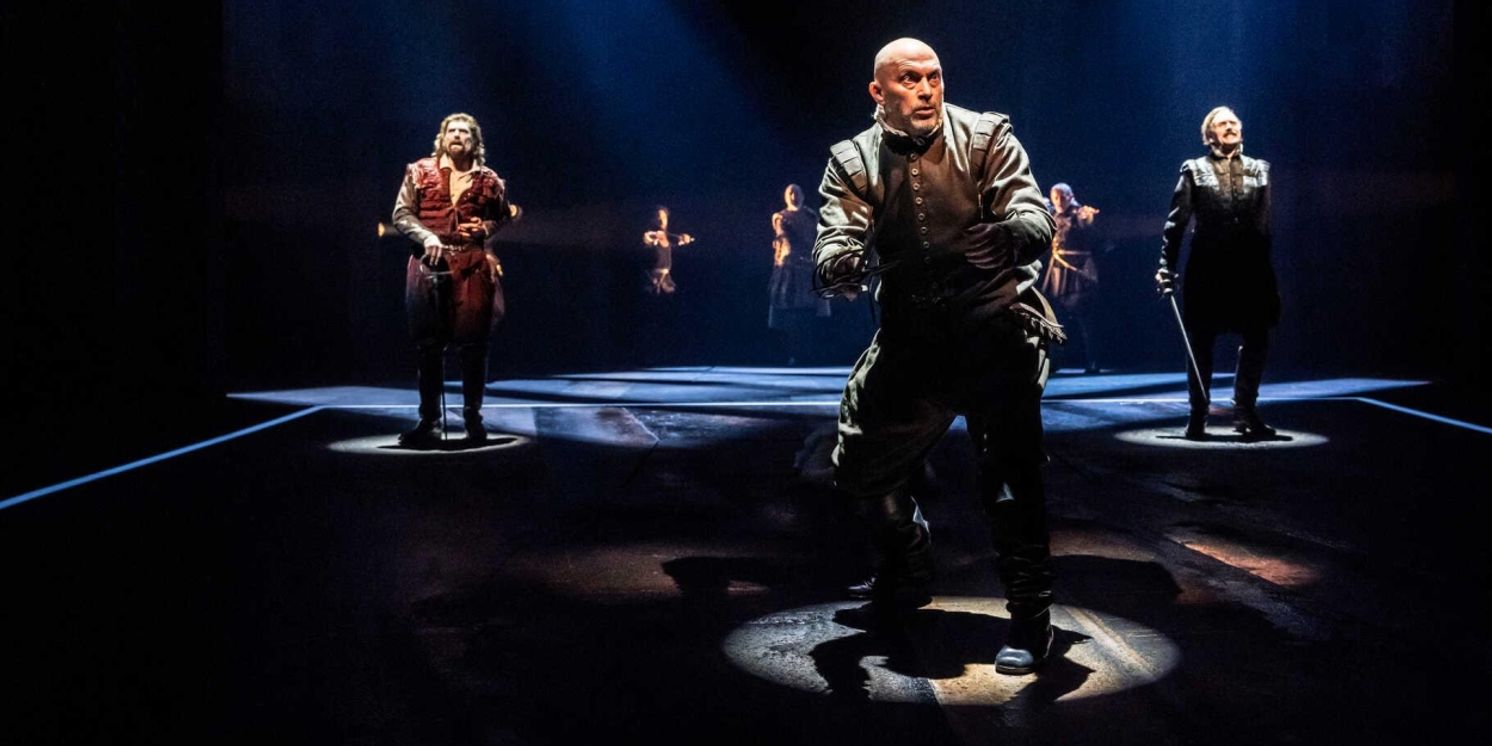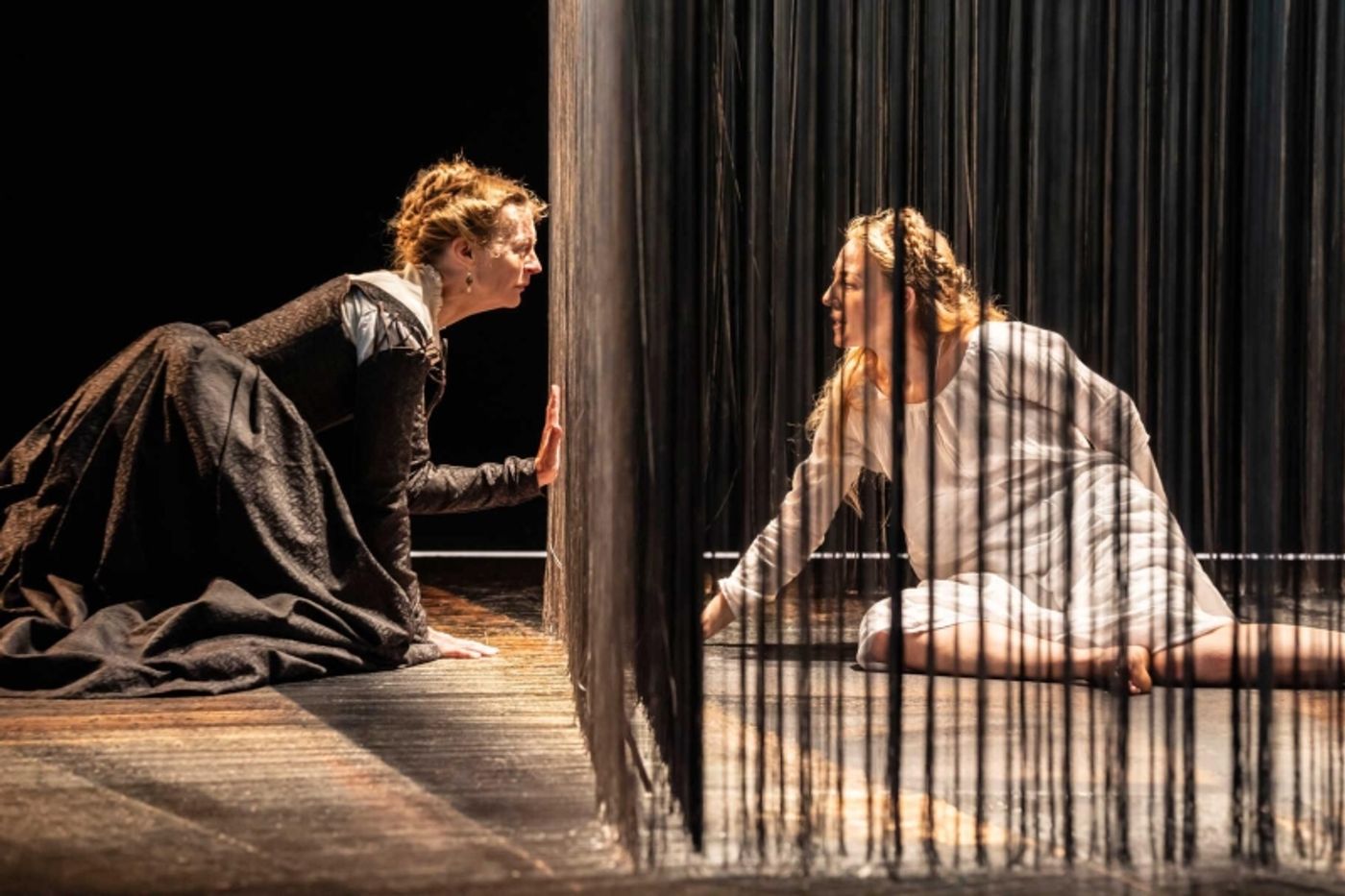Review: OTHELLO, Royal Shakespeare Theatre
New production of one of Shakespeare's most penetrating plays reveals lessons for today

 Tim Carroll’s production is about as straight an Othello as you can expect to see these days. There’s no modern dress, no multiple Iagos, no backstage conversations about a handkerchief and barely any set to suggest Venice or Cyprus - we’re in a mental rather than a geographical space. Women play women and blackface is consigned to the dustbin of history, but much of the remainder of the three hours is, I suspect, as close to the 1603 experience as one can get in 2024.
Tim Carroll’s production is about as straight an Othello as you can expect to see these days. There’s no modern dress, no multiple Iagos, no backstage conversations about a handkerchief and barely any set to suggest Venice or Cyprus - we’re in a mental rather than a geographical space. Women play women and blackface is consigned to the dustbin of history, but much of the remainder of the three hours is, I suspect, as close to the 1603 experience as one can get in 2024.
That pushes our attention, almost exclusively so, on to the speeches and the acting, forcing us to dissect the characters and how they interact with each other within the shifting relationships. The decision to limit the depiction of the climactic violence to a symbolic street fight and (erroneously, since it sanitised the horror) a lights-out suffocation, further pushed us away from the spectacle of the physical and into the mysteries of the psychological. Othello as a film noir.

Will Keen has fire in his eyes when Iago speaks of his hatred of Othello, relentlessly othered to just The Moor, and he plays the lovelorn idiot, Roderigo (Jethro Skinner), like a violin to extort his money and then importune him into his plot to drive a murderous wedge into his commanding officer’s marriage.
So far so good, but Keen does not vest the crucial sly charm into his Iago, seldom seeking to recruit us into his machinations (not never though, since this fourth wall is permeable), but his relationship with his General is as cold as that he has with his wife, Emilia (Anastasia Hille). We see the motivation sparked by his professional slighting in Othello’s favouring of Cassio (Edward Hogg), but the hatred Iago bears Othello is as much personal - akin to that of a spurned lover. Would the mere preferment of a fellow officer be sufficient to tip an intelligent, ambitious and politically astute man into so self-destructive a spiral?
Juliet Rylance forgoes much of the schoolgirlish flirtatiousness sometimes given to Desdemona, which is welcome, but it does raise the question about her naivety in failing to see that she is baiting her husband, who is a man of violence, with the pawing of, and pleading for, Cassio . Indeed it’s Othello’s tales of derring-do that seduced her, so how could she fail to act on seeing that her fate was in the post the moment she detected the froideur between them, the product of the lies planted by Iago in Othello’s mind. Rylance is excellent in portraying Desdemona’s emotions, less so her intelligence.
That said, in a production in which people seem to talk past each other as much as they talk to each other, Desdemona may be the only one who really connects, to her proud husband, to the desperate Cassio, to the foolish Emilia: and much good it does her. Then, as now, women moved in a world in which misogynistic assaults were widely condemned, and equally widely perpetrated, even the street-smarts of Cassio’s lover, Bianca (a fine cameo from Madeleine Hyland), not fully insulating her.
In a play that’s sometimes said to be misleading in its title - should it be Iago and not Othello? - John Douglas Thompson places the General’s fall from grace at the centre of the narrative, shifting the thematic focus from jealousy to racism.
Very early we hear that poison announced by Colin Hurley’s incandescent Brabantio the father who disowns his now married daughter, Desdemona, on the spot, and also in the more sotto voce bigotry from Iago and his acquaintances, none of whom are in the least bit surprised. It’s telling too, that Thompson loses his regal posture and habitually crouches like an abused pet, as Othello withers, the weight of racism borne on his shoulders for so long crushing him physically and psychologically. His days enslaved as a child, the verbal abuse, the microaggressions, the furtive looks must be invading his every thought. How would that not be fertile ground for a Machiavellian schemer like his overlooked lieutenant?
As ever, Shakespeare finds the universal in the particular and this production brings his insights right up to date. A little bloodless it may be, literally and metaphorically, but at a time when there is more and more recognition of the impact on mental health caused by living in environments suffused by racism, spoken and unspoken, intentional and unintentional, resisted and accommodated, I understand more Othello’s vulnerability to Iago’s sometimes absurd persuasions.
It is not the veracity nor even the credibility of Iago’s words that matter, it’s the fertility of the ground on which they land. Some politicians today, some as dangerous as Iago, know that more instinctively than others.
Othello at the Royal Shakespeare Theatre until 23 November
Photo Credits: Johann Persson
Reader Reviews
Videos

